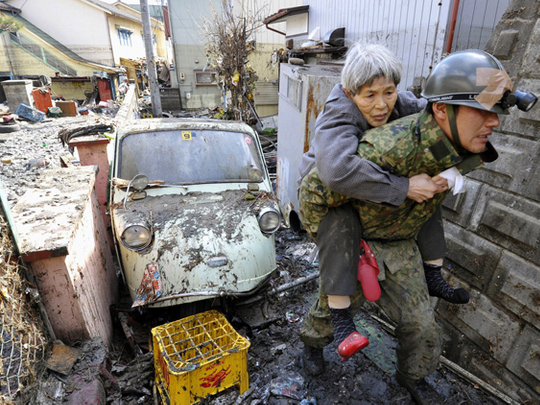
The massive earthquake and tsunami waves that rocked parts of Japan, taking a huge toll of human life and property, served as a reminder that no matter how high the state of human preparedness is, man cannot flirt with nature. The explosion yesterday at a nuclear plant in Fukushima further underlined this fact, giving a hint that perhaps the worst is yet to come.
Friday's tremor was 1,000 times more powerful than that which rocked the city of Christchurch in New Zealand last month.
Despite the scenes of wide-scale destruction, beamed into homes through television sets by news channels, the extent of the damage has still been minimised — thanks to Japan's top-notch infrastructure and warning systems which are second to none.
Japan is not immune to earthquakes, since it is perched on top of one of the most seismically active points in the world. This subjects the country to hundreds of tremors annually, but the focal point of attention is now centred on the reasons behind the nuclear explosion and the subsequent leak that has occurred. Very little can be done once the reactor loses the capacity to cool the nuclear fuel within its core. Among potential health hazards, there is damage to the fuel, release of radioactive gases into the nuclear reactor containment building and, in the worst possible scenario, core meltdown and breach of containment.
With the frequency of natural disasters going up, the two quakes that struck Japan and New Zealand in the span of a month should serve as a stark warning to mankind to get its act together. The focus should be on trying to contain the extent of destruction through proper civic planning and use of infrastructure. Often we are lulled into a sense of complacency, taking nature for granted. The cost of that lapse can be enormous.








